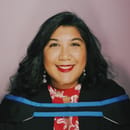Trigger Warnings: Death, violence, issues of racial injustice
With the world in quarantine, people have had a lot of time to think. About politics. About injustice. About issues of race. This was the case when the video of George Floyd’s horrific murder surfaced on the 25th of May, documenting his last moments as officer Derek Chauvin knelt on his neck for over eight minutes. His death joined the many Black lives that had been lost at the cost of police brutality this year alone – Breonna Taylor, Ahmaud Arbery and, in a local context, Collins Khosa. The #BlackLivesMatter movement had been alive since 2012, after the death of Trayvon Martin, at the hands of police officer George Zimmerman, and continues to be an important movement raising awareness and mobilising change for the discrimination and oppression of Black people.
As a non-Black person, I have struggled to navigate talking about this issue, not wanting to overstep any boundaries or speak over Black voices. However, one cannot be silent. To choose silence is to choose complacency, which, in turn, is a form of oppression. As civil-rights activist, known Marxist feminist, and living legend Angela Davis states, “in a racist society, it is not enough to be non-racist but rather anti-racist.” Thus, to be silent or “non-racist”, instead of actively anti-racist, is to oppress. In my search to become more knowledgeable about the matter, I came across Mireille Harper’s Twitter thread on non-optical allyship. Harper defines optical allyship as, “allyship that only serves the surface level to perform “the ally”. This act of performance can be seen in the tagging of people in Instagram chains for the sake of creating “awareness” for the movement, or the posting of a black square with the #BlackLivesMatter hashtag, stopping valuable resources from being shared instead.
Thus, the definition of non-optical allyship would be more engaged participation in allyship, as opposed to the performative. Here are some things I have learned on my journey to become one.
- Read
-
Read, read and read some more. Harper recommends the works of Layla Saad and Ibram X. Kendi, who highlight the ways in which people can become anti-racist. Personally, I have found Kimberlé Crenshaw’s views on intersectionality and violence against women of colour to be helpful, as well as Frantz Fanon’s views on the construction of a national and colonial identity. However, I have learned that becoming educated on these issues is a continual process. So, one should be vigilant – in academic spaces, in the home and online.
- Think
-
Be careful about how you conduct yourself online. Be careful about the language you use online and in your personal life. As Harper states, this is a traumatic time for many Black people, so it is important to check in on your Black friends and family. Furthermore, do not invalidate the experiences of Black people as a non-Black person. Non-Black people are in a position of privilege to be able to read about the experiences of Black people, instead of experiencing these themselves, especially at the hands of law enforcement. Confronting this privilege is not an easy process, but it is necessary in order to become a non-optical ally.
- Do
-
Being online can be daunting. As soon as one logs in, it can be overwhelming to see everything wrong with the world in one place. However, if one has a platform, I am of the opinion that one needs to use it. Share petitions. Sign petitions. Go to protests (both in real life and online, if possible).
Most importantly, speak to those close to you about this. Although it may be difficult, it is important to have discussions about these issues with your friends and family who may not think the issue at hand is as serious as it is. To be a non-optical ally is to be in a state of dynamism – a state of constant learning, listening and action. It is about time we all took it upon ourselves to start this dynamism in our own lives.


